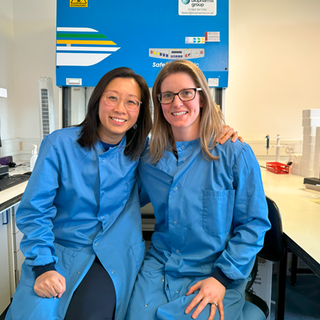Survival in people with myeloma nearly doubles since 2005
United Kingdom
People diagnosed with myeloma, a blood cancer are now living nearly twice as long on average as they were in 2005. The findings come from new research funded by Blood Cancer UK and Cancer Research UK.

Researchers at the University of York analysed data from more than 3,700 people in England. They found that median survival increased from 2.4 years for people diagnosed between 2005 and 2007 to 4.5 years for those diagnosed between 2017 and 2019. The scientific journal, Haematologica published the results.
These results show that research works, but if we are to keep improving survival, we must do whatever it takes.”
- Dr Richard Francis, Blood Cancer UK
Myeloma affects around 6,300 people in the UK each year, making up about 2% of all cancer cases. There is currently no cure, but treatment helps control the disease and extend life.
People aged 80 and over have seen the biggest improvements. In this group, the proportion of people living for five years or more has increased five-fold since 2005.
Researchers point to greater participation in clinical trials and the availability of treatments that frailer patients can better tolerate.
Thanks to research, someone diagnosed with myeloma now has far better prospects than they would have two decades ago.
- Professor Alexandra Smith, University of York
Dr Richard Francis, Deputy Director of Research at Blood Cancer UK, said:
“Blood cancer is the UK’s third biggest cancer killer, and too many people with myeloma still die too soon. These results show that research works, but if we are to keep improving survival, we must do whatever it takes. That means world-class blood cancer research, faster access to clinical trials, and an NHS that can deliver the best new treatments quickly.”
What did the researchers say>
Professor Alexandra Smith, from the University of York
“New treatments are less toxic and more effective, meaning that all patients – including the most vulnerable – can benefit.
“But we can’t stop here. Survival for myeloma remains low, which is why research into better treatments and earlier diagnosis is essential.”

Also speaking about the research, Cancer Research UK's CEO, Michelle Mitchell said:
"Every improvement in cancer survival represents more time for patients with their loved ones.
“This progress is the result of scientists and NHS staff working together, showing why research must remain central to our health service.
“The upcoming National Cancer Plan for England must ensure clinicians have the support to run more clinical trials and bring new treatments to patients more quickly.”



